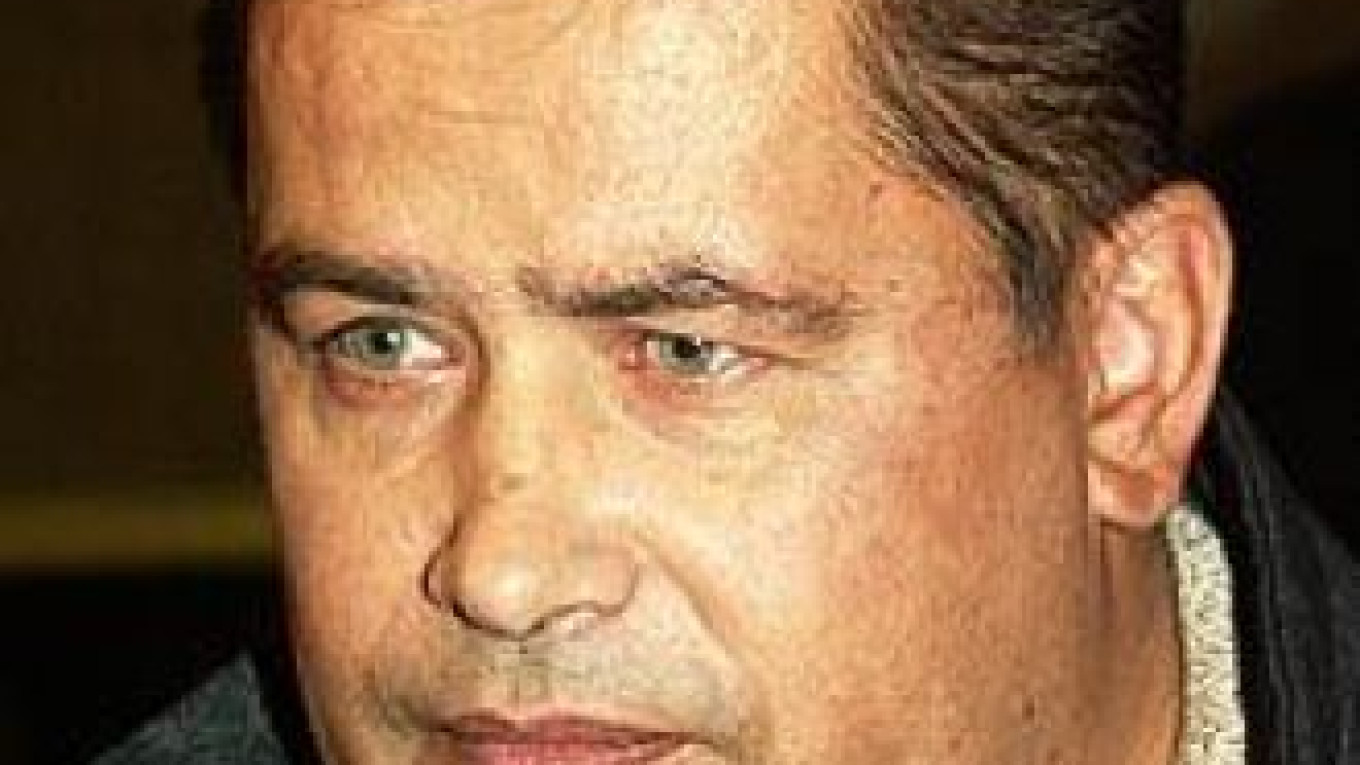Nikolai Rastorguyev, whom Prime Minister Vladimir Putin calls his favorite folk rock singer and who has no experience in politics, became a State Duma deputy with United Russia on Wednesday.
The front man for the rock band Lyube fills a seat vacated by Sergei Smetanyuk, who was recently appointed deputy presidential envoy to the Urals Federal District.
Rastorguyev said he was looking forward to starting his "interesting" new job.
"I will try to jump into the swing of things as soon as possible," he said in a statement to The Moscow Times.
A senior United Russia official, Andrei Vorobyov, praised Rastorguyev for providing Russian youth with a “patriotic education” with his music and said he expected the musician to continue his efforts in the Duma.
“This mandate will give him additional opportunities to systematically develop such programs, and we will support him in that,” Vorobyov said in a statement.
Rastorguyev, 53, will represent the southern Stavropol region in the Duma. He was on United Russia's ticket in the 2007 Duma elections but did not get assigned a seat.
Rastorguyev is known to have a good relationship with Putin, who even invited
the singer to his summer residence in Sochi for supper while the band was on tour there in the summer of 2002.
“Many like Lyube, and this is understandable because they sing about us, about the country,” Putin told reporters at that time.
Putin has described Rastorguyev as his favorite Russian folk rock singer.
In a nod to Putin’s music preferences, state television played one of Lyube's songs while showing Putin and President-elect Dmitry Medvedev walking out of the Kremlin after Medvedev's election victory in March 2008.
Rastorguyev has called United Russia “the mighty party that brings to life all of Putin’s plans.”
Stanislav Belkovsky, a political analyst with the Institute of National Strategy, downplayed the notion that Rastorguyev’s political career would be serious. “He is just Putin’s favorite singer who got this job as a gift,” he said.
Lyube gained popularity during the Mikhail Gorbachev era and has often used patriotic themes on stage. In concert, Rastorguyev often wears World War II-style military fatigues — a soldier's coat, breeches and knee-high boots — as he sings an eclectic mix of humorous marches and pastoral ballads, often about the military and the marines.
In 1996, Rastorguyev wrote the song “Battalion Commander” and dedicated it to charismatic General Alexander Lebed, then a presidential candidate and later a Krasnoyarsk governor who died in a helicopter crash in 2002.
In another well-known song, he half-jokingly asserts Russian claims to Alaska, which the tsarist government sold to the United States in 1867.
Music critic Boris Barabanov noted that Rastorguyev’s appointment to the Duma puts him in the company of United Russia celebrities like Fyodor Bondarchuk, director of Afghan War film "The 9th Company," which was praised by Putin.
“We have a leading patriotic filmmaker, and we have a leading patriotic singer," Barabanov said.
Other celebrity deputies with United Russia include former gymnastic champions Alina Kabayeva and Svetlana Khorkina, as well as Soviet crooner Iosif Kobzon.
Rastorguyev is not the only member of Lyube to delve into politics. The band's former guitar player Alexander Vainberg is deputy speaker of the Nizhny Novgorod regional legislature.
Click below for a video of Lyube's song "Davai Za." (In Russian)A Message from The Moscow Times:
Dear readers,
We are facing unprecedented challenges. Russia's Prosecutor General's Office has designated The Moscow Times as an "undesirable" organization, criminalizing our work and putting our staff at risk of prosecution. This follows our earlier unjust labeling as a "foreign agent."
These actions are direct attempts to silence independent journalism in Russia. The authorities claim our work "discredits the decisions of the Russian leadership." We see things differently: we strive to provide accurate, unbiased reporting on Russia.
We, the journalists of The Moscow Times, refuse to be silenced. But to continue our work, we need your help.
Your support, no matter how small, makes a world of difference. If you can, please support us monthly starting from just $2. It's quick to set up, and every contribution makes a significant impact.
By supporting The Moscow Times, you're defending open, independent journalism in the face of repression. Thank you for standing with us.
Remind me later.


